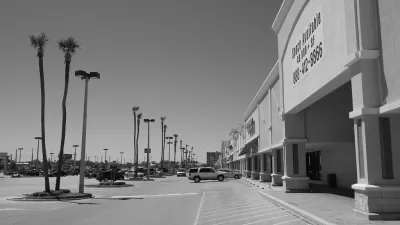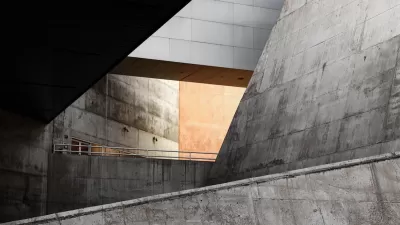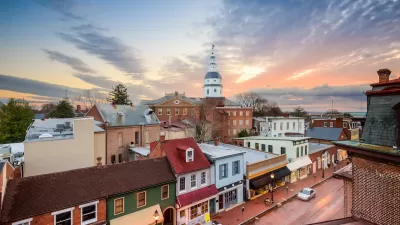An economic development pro makes an argument for an approach to economic development that prioritizes the urban design decisions that favor community character.

Joe Borgstrom, principal with Place + Main Advisors, LLC, flips the script on the traditional defense of community character: the reader won't find here an impassioned defense of suburban tract homes and the free flow of automobiles, but an approach to economic development that reflects the urban design agenda put forward by the Congress for the New Urbanism.
"Preserving a community’s character is often used as a rallying cry for the NIMBY (Not in My Back Yard) crowd, but a community can improve itself without completely changing its character," Borgstrom writes.
But where some market urbanists might find fault with the idea of community character as a quantifiable concept, Borgstrom argues for the inherent economic value of community character: "Before any marketing brochure, website, or ad campaign, the community’s character is its first and most important economic development message."
With more detail included in the article, Borgstrom lists several character killers, namely, strip malls, car-centric land use and infrastructure, national chains, mega-block projects, and a lack of historic preservation.
On the issue of historic preservation, Borgstrom is most in-line with the traditional development opposition politics the article clearly intends to critique. The difference might be found in Borgstrom's focus on the financial incentives working in preservation's favor (even in the face of market pressure that favors building quick, cheap, disposable buildings, according to Borgstrom): "But historic preservation is an effective economic development tool that can help prospective building owners get financing for the appropriate care and redevelopment of a property. There are several financial incentives to do these types of projects, namely the federal Historic Tax Credit which offers up to 20% tax credit for eligible expenses."
FULL STORY: How to Prevent Killing Your Community’s Character

Alabama: Trump Terminates Settlements for Black Communities Harmed By Raw Sewage
Trump deemed the landmark civil rights agreement “illegal DEI and environmental justice policy.”

Study: Maui’s Plan to Convert Vacation Rentals to Long-Term Housing Could Cause Nearly $1 Billion Economic Loss
The plan would reduce visitor accommodation by 25% resulting in 1,900 jobs lost.

Planetizen Federal Action Tracker
A weekly monitor of how Trump’s orders and actions are impacting planners and planning in America.

Wind Energy on the Rise Despite Federal Policy Reversal
The Trump administration is revoking federal support for renewable energy, but demand for new projects continues unabated.

Passengers Flock to Caltrain After Electrification
The new electric trains are running faster and more reliably, leading to strong ridership growth on the Bay Area rail system.

Texas Churches Rally Behind ‘Yes in God’s Back Yard’ Legislation
Religious leaders want the state to reduce zoning regulations to streamline leasing church-owned land to housing developers.
Urban Design for Planners 1: Software Tools
This six-course series explores essential urban design concepts using open source software and equips planners with the tools they need to participate fully in the urban design process.
Planning for Universal Design
Learn the tools for implementing Universal Design in planning regulations.
Caltrans
Smith Gee Studio
Institute for Housing and Urban Development Studies (IHS)
City of Grandview
Harvard GSD Executive Education
Toledo-Lucas County Plan Commissions
Salt Lake City
NYU Wagner Graduate School of Public Service





























